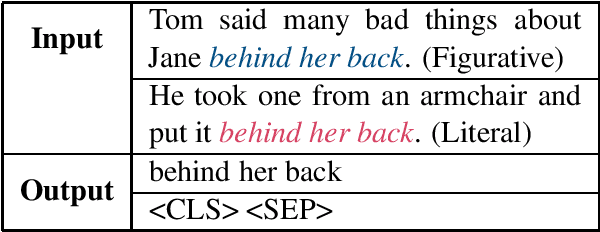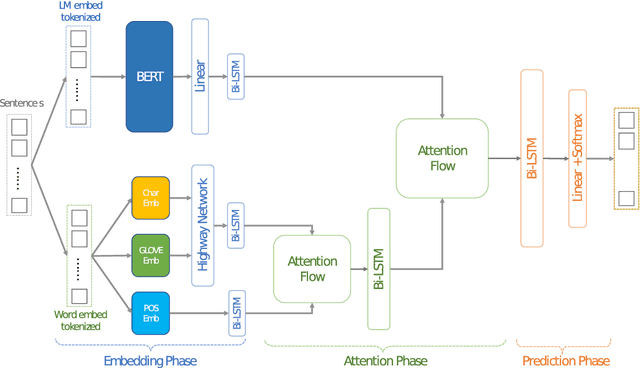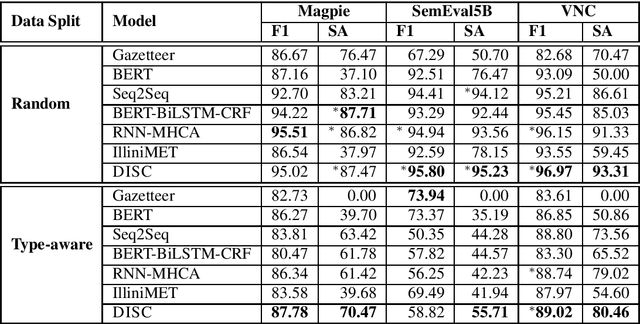Idiomatic Expression Identification using Semantic Compatibility
Paper and Code
Oct 19, 2021



Idiomatic expressions are an integral part of natural language and constantly being added to a language. Owing to their non-compositionality and their ability to take on a figurative or literal meaning depending on the sentential context, they have been a classical challenge for NLP systems. To address this challenge, we study the task of detecting whether a sentence has an idiomatic expression and localizing it. Prior art for this task had studied specific classes of idiomatic expressions offering limited views of their generalizability to new idioms. We propose a multi-stage neural architecture with the attention flow mechanism for identifying these expressions. The network effectively fuses contextual and lexical information at different levels using word and sub-word representations. Empirical evaluations on three of the largest benchmark datasets with idiomatic expressions of varied syntactic patterns and degrees of non-compositionality show that our proposed model achieves new state-of-the-art results. A salient feature of the model is its ability to identify idioms unseen during training with gains from 1.4% to 30.8% over competitive baselines on the largest dataset.
 Add to Chrome
Add to Chrome Add to Firefox
Add to Firefox Add to Edge
Add to Edge